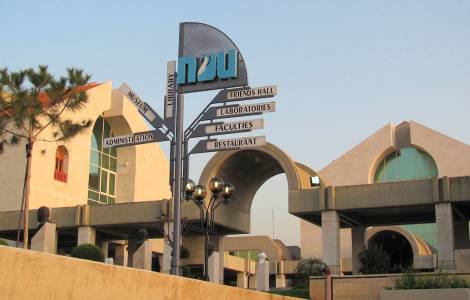
Notre Dame de Louaizé University
Beirut (Agenzia Fides) - A conference hosted today, Saturday, July 1, by the Notre Dame de Louaïzé University, deepens the crucial question of the compatibility between the principles of citizenship and pluralism and the social and political organization of Muslim majority Countries that recognize Islamic law as the source of its constitutional set of rules.
The initiative hosted by the Lebanese Catholic University located in the Governorate of Monte Lebanon, at the center of the Country of Cedars, and realized with the patronage of the Maronite Patriarchate, resumes the key issues dealt with in the great conference on issues of citizenship and pluralism organized between the end of February and the beginning of March at al Azhar's University, the largest academic-theological center of Sunni Islam. At the conference hosted by the University of Notre Dame de Louaïzé, representatives of Lebanese Islamic and Christian communities, together with Sheikh Abbas Shuman, deputy of the Great Imam of Al Azhar. At the end of the conference, a committee will try to draw up a "Declaration of Louaïzé", bearing in mind the situation in Lebanon, as a contribution to peaceful coexistence between Christians and Muslims within the same State founded on the principles of citizenship and full equality of citizens in front of the law.
The so-called "Al Azhar Declaration", widespread at the end of the aforementioned conference on citizenship and pluralism organized by the Sunni University in Cairo, stated, among other things, that the notion of citizenship "is well rooted in Islam", and that a first formulation is "in the Constitution of Medina and in the documents of the Prophet that followed, that regulate the relations between Muslims and non-Muslims". Thus "the concept of citizenship is not an imported solution, but a modernization of the first Muslim exercise of power by the Prophet, in the first Muslim society. This practice did not imply any discrimination or exclusion to any section of society at the time, but prefigured the pursuit of policies based on the plurality of religions, races and social strata, "tending to ensure the full sharing of the same rights and duties between Muslims and non-Muslims. (GV) (Agenzia Fides, 1/7/2017)